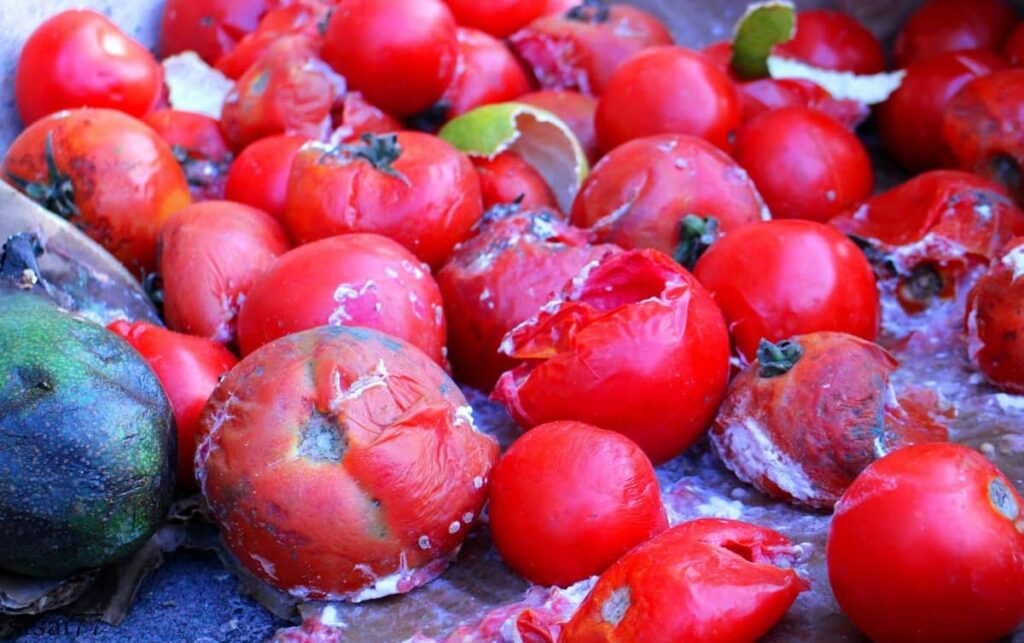
In Nigeria, broken and spoiling tomatoes and peppers (called esa in Yoruba or awalawa in Igbo) are packed aside by vendors and sold differently, often cheaper than ones that are still strong and fresh.
Due to the price cut, many people often go for these types of tomatoes in a bad state. There are even assumptions that some particular types of foods specifically require to be cooked with spoiling tomatoes.
Does esa or awalawa tomatoes cause cancer?
The possibility of rotten tomatoes and peppers causing cancer when consumed have been found to be true.
This is because when fresh foods like tomatoes and peppers go bad, they are often attacked by a variety of moulds or fungi, most commonly Aspergillus, Penicillium and Byssochlamys, etc. These moulds often appear as the whitish or greyish stuff you see on rotting tomatoes and other foods.
Multiple studies have shown that these moulds or fungi produce some natural toxins called mycotoxins. A common class of these mycotoxins called aflatoxins have been found to be highly toxic and carcinogenic to humans.
According to the WHO, aflatoxins produced by fungi in tomatoes are potent carcinogens that can cause liver cancer. Aflatoxins have been linked to other types of cancers as well. Many other scientific sources have also listed “exposure to aflatoxins” as a major risk factor for liver cancer.
Will cooking rotting tomatoes or esa or awalawa make it safe to consume?
No. Mycotoxins like aflatoxins have been found to be thermostable – meaning they are not completely destroyed by heat.
While cooking or boiling your rotting tomatoes or esa or awalawa especially for long periods obviously does some good, it will not completely eliminate the cancer risk.
Here are ways you can prevent cancer risk caused by tomato fungus:
- Consume only strong and fresh-looking tomatoes
- Do not store foods for a long period of time before consuming
- Avoid foods with visible signs of a mould or fungal contamination


